Pain, poverty, bribery and glory: the extraordinary rise of Roberto Firmino
Roberto Firmino battled the odds to become a Premier League and European champion at Liverpool, after making a miraculous journey from Maceio to Merseyside via a five-year spell in Germany. FFT retells the remarkable tale with those who were part of it
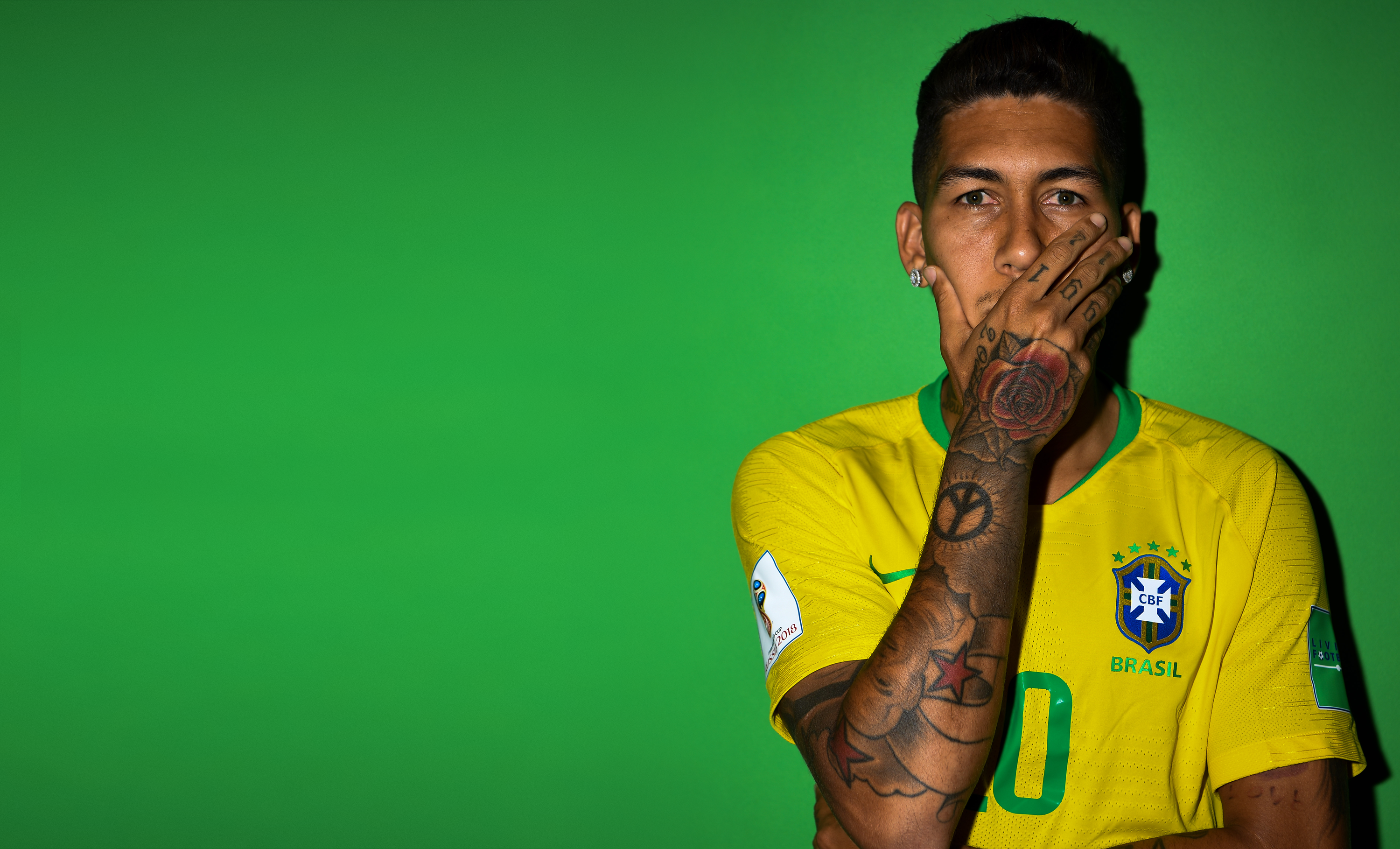
There are good trials, there are great trials, and then there are the kind of trials that Roberto Firmino enjoyed at Figueirense in 2007.
The 16-year-old had travelled 2,000 miles from the crime-infested city of Maceio on Brazil’s eastern tip – and with him was a dentist.
Dental surgeon Marcellus Portella had been working as part of the medical team at CRB, a club in Brazil’s second division, when he stopped to watch Firmino playing for one of the youth teams. He liked what he saw, and immediately offered to represent the starlet. With his assistance, Portella said, Firmino could earn enough cash to move his family out of their impoverished neighbourhood someday.
THE CURLETT CUP Liverpool's greatest trophy you've never heard of
Portella began trying to get Firmino noticed, and he connected CRB youth coach Toninho Almeida with Luciano ‘Bilu’ Lopes – a Maceio native and experienced pro at Atletico Mineiro. Bilu helped to plan a trial at Sao Paulo, which didn’t go well, and another at Figueirense. As sporting director Erasmo Damiani remembers, Firmino did the rest.
“Roberto scored two overhead kicks within half an hour of his first training session in the morning,” he tells FourFourTwo with a smile.
“The under-17 coach, Hemerson Maria, soon rushed to my room, urging us to keep hold of him. The same thing happened later in the afternoon with the under-20 coach, Rogerio Micale. ‘If Hemerson doesn’t take him, I want this kid with my team,’ he insisted. That’s how talented Roberto was.”
Get FourFourTwo Newsletter
The best features, fun and footballing quizzes, straight to your inbox every week.
Around the world in 80 clubs
Firmino was signed on the spot, as Figueirense were finalising preparations ahead of Brazil’s 2008 domestic campaign. Between January and May, the club would be competing in the Campeonato Catarinense, a regional division in the state of Santa Catarina, with the Serie A season to follow.
It was about this time that Lutz Pfannenstiel, a German goalkeeper coming to the end of a nomadic playing career, pitched up in Brazil. Football had taken him around the globe, from New Zealand to Norway and South Africa to Singapore, and he was ready to move on again following six months in Canada.
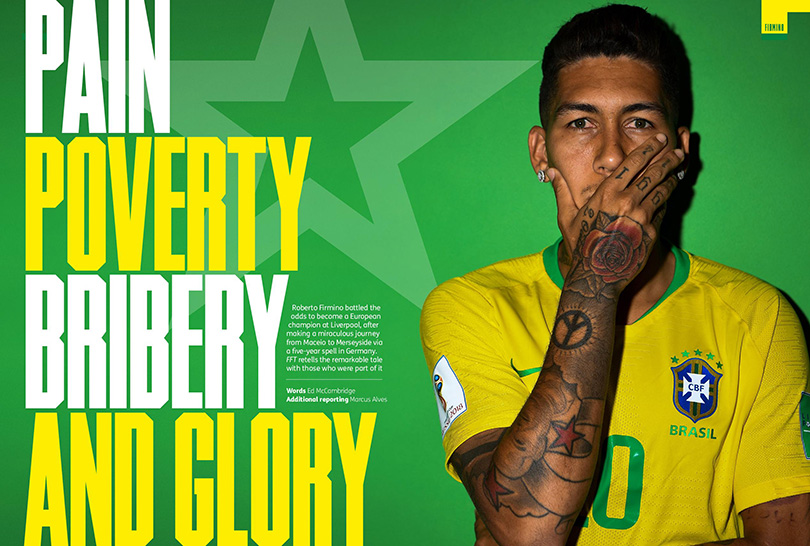
This story first appeared in the July 2020 issue of FourFourTwo magazine. Subscribe today and pay just £9.99 per quarter
“I was in Vancouver when my agent called and asked if I was interested in going to South America,” Pfannenstiel tells FFT. “At the time, I had played professional football in five FIFA confederations, and he told me it would be an amazing record to make it six. It had been my dream to play in Brazil, so several weeks later I signed for Atletico Ibirama in Santa Catarina. Firmino was in the youth team of Figueirense, who were in our league.”
Pfannenstiel never directly faced the young Firmino, although some convenient scheduling ensured he was able to watch him in action. The playing conditions, however, meant the youngster’s talent wasn’t always easy to spot.
“The youth teams would often play on the same weekend as the first team,” recalls the former keeper, “so I was lucky enough to see a young Roberto play a few times. That league was nothing like you would imagine Brazilian football to be, though. It was deep down in the south, not far from Argentina; a very hard and physical environment. Forget samba-inspired Brazilian football – this was all long balls and opponents kicking the s**t out of each other.”
Over time, these bruising encounters gave Firmino some added toughness. Off the pitch, though, he was a desperately quiet character.
“If you went up to him and said he wouldn’t get his salary that month, he would just look at you and smile,” chuckles Damiani. “It was unbelievable. He was so shy that people asked me if he was mute.”
But despite his reserved nature, the prodigy’s displays had got him noticed.
“Arsenal had him on their radar and were considering making an offer,” reveals Damiani. “They chose to wait and see. PSV wanted him as well: they promised to get in touch with an official invitation, but took too long.”
By the summer of 2009, it was Marseille who were seriously interested – and their invitation of a trial also included a return plane ticket to Paris. A potentially life-changing opportunity beckoned for the 17-year old Firmino. However, his dreams were quickly reduced to the stuff of nightmares.
His outbound flight included a short layover at Madrid’s Barajas Airport, a gateway between Europe and South America that is notorious for its strict immigration procedures. Having touched down in the Spanish capital, Firmino had all of his documents thoroughly checked, before he was interrogated by airport officials. He was taken to a room filled with other bewildered travellers and they were collectively informed their journeys would be going no further. Firmino was sent back to Brazil on the next available flight.
“That trip to Marseille was a very traumatic one for him,” explains Damiani. “In Madrid he was asked for all sorts of documents he didn’t have. He was desperate, alone and didn’t know a single word of Spanish. He called his parents from the airport in tears.
“I spoke to the police officer in Madrid and sent him a fax that specified exactly how long he would be training with Marseille, but there was this whole diplomatic row between Brazil and Spain going on back then, so they simply deported him.”
To make matters worse, anyone who went through that hellish process had their passport stamped, forbidding them to enter Spain for the next 10 years. Fortunately, Marseille remained determined to get a look at Firmino.
“A month later, they sent him a brand new invitation, but this time they booked a flight going straight to Paris,” beams Damiani. Once again, Firmino packed his things and prepared for a life-changing opportunity. Once again, he would be left disappointed.
“He did end up going on trial with Marseille, but ultimately they declined to pay his release clause,” laments Damiani.
For the second time, Firmino returned home to Brazil in tears.
Journey to the middle of nowhere
A call-up to Figueirense’s senior team arrived after the conclusion of their 2009 campaign, weeks after Firmino’s 18th birthday. Brazil’s second tier – Figueirense had been relegated – was a more rarefied atmosphere in which to display his talents. In 2010, during his first full season of men’s football, Firmino scored eight league goals as the club secured promotion back to Serie A.
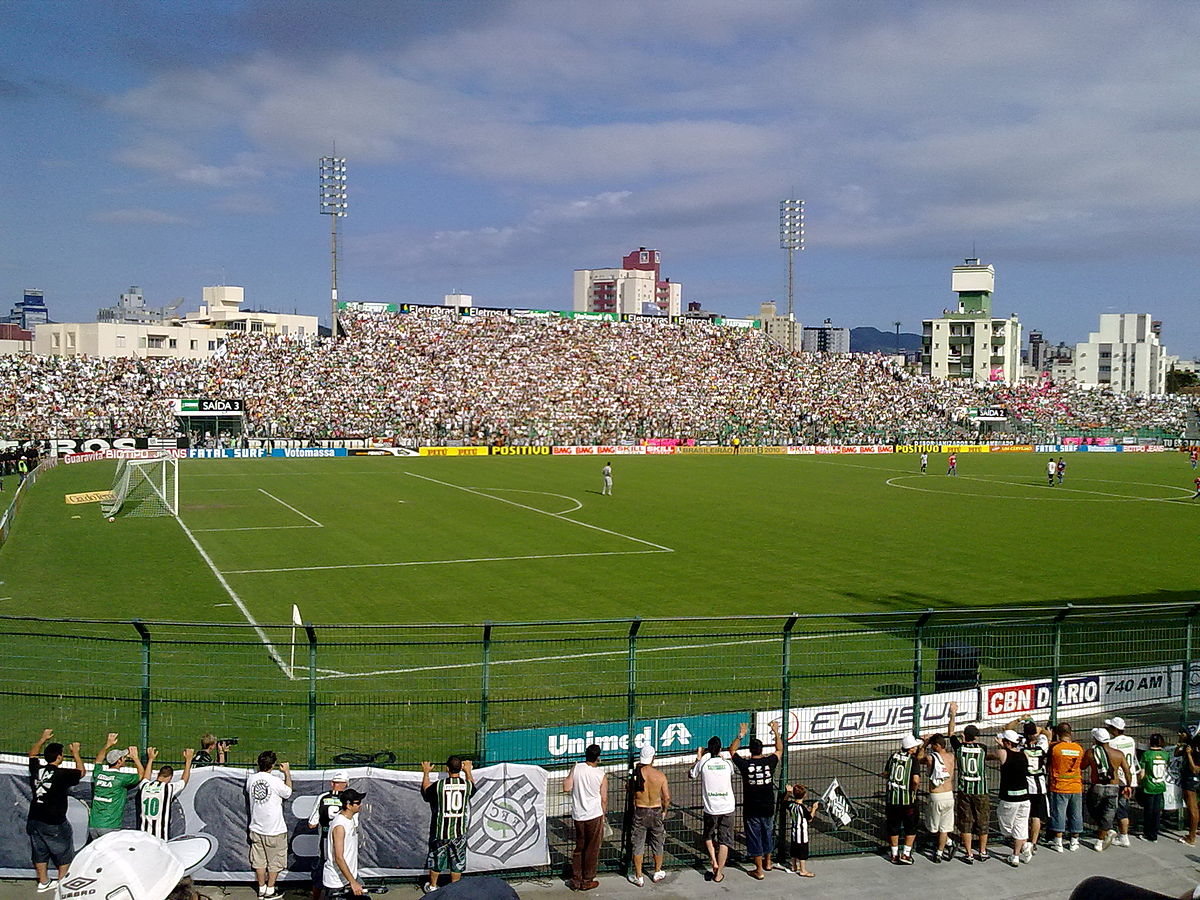
“Once Firmino had been promoted to their first team, he didn’t take long to make a name for himself,” says Damiani. “He was named the breakout star of Serie B.”
It was during this campaign that Firmino first came to the attention
of Ernst Tanner, then sporting director at Bundesliga club Hoffenheim. But the talent spotter would need some convincing.
“I first heard Roberto’s name when a scouting agency in Brazil offered him to
us,” remembers Tanner, now sporting director at MLS side Philadelphia Union. “They provided us with videos and spoke highly of him.
“But the consensus on Brazilian players was not good at Hoffenheim then. We’d had some success with the likes of Carlos Eduardo and Luiz Gustavo, but the past few Brazilians we’d been offered were flops.”
By this point, Pfannenstiel the globe-trotting glovesman was poised to take up a scouting role under Tanner at Hoffenheim. Before he officially started, the club called to ask if he’d ever come across Firmino in Brazil.
“I said that I’d seen him and he was a huge talent, but that he’d need to improve physically if he wanted to thrive in Germany,” continues Pfannenstiel. “That’s when Ernst decided to go and see him for himself.”
And so, in the autumn of 2010, Tanner flew to Brazil to track down Firmino. But it was the worst possible time to visit, the league calendar having been thrown into chaos by the recent World Cup in South Africa. Fixtures that should have been played in June and July had been postponed, with clubs then forced to play catch-up later in the year, frequently in distant locations.
“I followed Figueirense to an away match in Goiania, around 750 miles to the north of Florianopolis [in Santa Catarina],” says Tanner. “It was a long, hard journey to the middle of nowhere. They lost 3-1 and Firmino came on for the final 27 minutes. I’m not even sure he touched the ball.”
Figueirense had to hotfoot it back home for another game only three days later. With no guarantee that Firmino would feature much in that match, either, Tanner decided to watch one of the team’s training sessions. But even that was easier said than done.
“I turned up and they wouldn’t let me in the stadium,” Tanner says with a sigh.
“I hadn’t travelled all that way for nothing, though, so I bribed one of the guards. I said that I was a tourist; a groundhopper who just wanted a look inside the stadium. Eventually, he let me in.”
Tanner’s frustrations disappeared when he finally got a glimpse of Firmino in action.
“He was so quick, he had balance, he could head the ball and he worked well defensively,” Tanner tells us. “In that one training session, I saw exactly what I wanted. I was convinced we had to sign him.”
But if Tanner was impressed by the forward’s ability, Figueirense’s manager Marcio Goiano appeared not to be.
“Firmino was the most criticised player in the whole squad,” says Tanner, smiling. “The other players simply stood around laughing as the coach laid into him all afternoon. It looked as if he couldn’t do a thing right.”
LFC STORIES The Curlett Cup: Liverpool's greatest trophy you've never heard of
Years later, when both men were working for Red Bull – Tanner with Salzburg and Goiano at Bragantino – Tanner asked his colleague why he had been quite so tough on Firmino that day.
“He said it was his job to make sure Firmino realised his full potential,” grins Tanner, before breaking into laughter. “Then he asked how the hell I watched that training session when it was closed to the public.”
For Tanner, Firmino’s thick skin said plenty about his character, and helped to convince him of the teenage attacker’s potential value to Hoffenheim.
“Many younger players would have walked off the training pitch following that kind of treatment,” admits the sporting director. “But Firmino stuck it out. I liked that.”
It wasn’t the only thing Tanner admired.
“At a club like Hoffenheim, you need a No.10 who can work in both directions,” he explains. “You need someone possessing the qualities of a playmaker, but who is willing to put in the defensive work. Brazilians are always brilliant with the ball at their feet but rarely willing to defend. Firmino was different.”
Hoffenheim moved fast to sign the starlet, agreeing to pay his €4 million release clause. With that, the young forward could do what he had always wanted for his family.
“One of the requirements was that Firmino needed a signing-on fee,” reveals Tanner. “He wanted to buy a house for his family, because the area they lived in was desperately poor. It was so dangerous in his slum that we couldn’t visit him there."
Bundesliga breakout
Firmino arrived at Hoffenheim in January 2011, midway through the campaign, with his new club eighth in the Bundesliga. However, any hopes they had of immediately adding him to their attack were soon dashed.
“We did some tests when he arrived and we couldn’t believe the results,” Tanner tells FFT. “We had to repeat them, they were that bad. The demanding Brazilian season, playing three times a week and travelling thousands of miles between matches, had really taken its toll. His condition was shocking.”
The revised plan was to focus on getting him fit ahead of the following season. Part of that process included picking him in friendlies for Hoffenheim’s under-23s, coached at the time by Markus Gisdol.
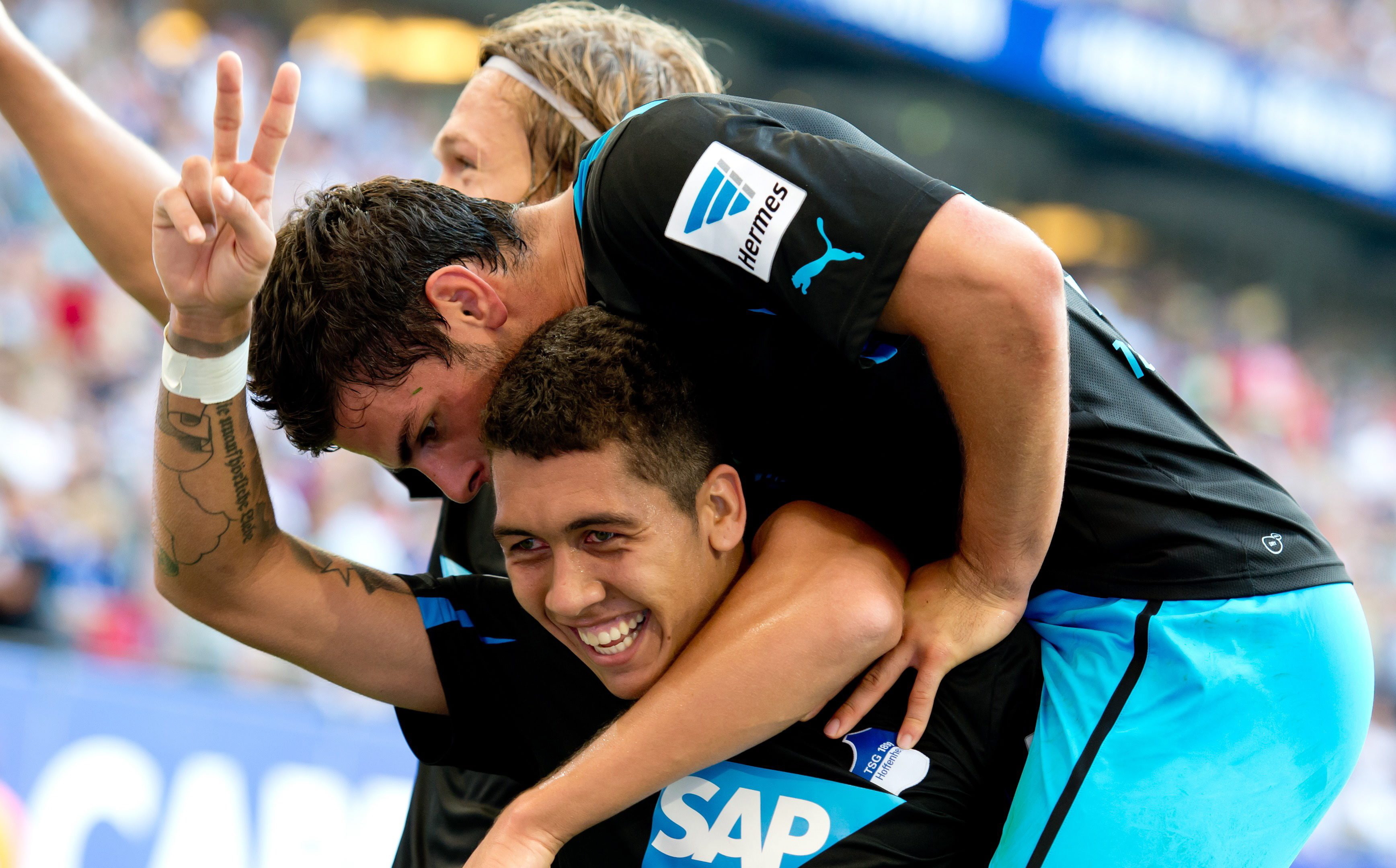
“He came to play with us on a number of occasions and I got to know him well,” recalls Gisdol, now in charge of Köln in the top flight. “He was very skinny and needed time to grow. German football requires a particular level of athleticism and he wasn’t quite there yet – but technically speaking, you could soon tell that he was a player of real quality.”
To everyone’s surprise, Firmino hit full fitness within a few weeks. With neither European qualification nor relegation likely, Hoffenheim could afford to test him sooner than expected. “We managed to build his endurance and get him into a strong condition very quickly,” says Tanner, “and he actually made his Bundesliga debut that February.”
Three goals in 11 appearances (and a total of 470 minutes) was a solid return given the circumstances, and Firmino followed it up with seven strikes in his first complete campaign.
“The style we played suited him,” explains Tanner. “We were playing with fast transitions, and he’s the kind of player who thrives in that system. He was the perfect age, too: 19 years old, in his prime learning years.”
“In terms of personality, Firmino really was a coach’s dream – an absolute professional,” enthuses Gisdol. “I can’t remember a single training session in which I needed to motivate him or criticise his effort.”
For a young Brazilian more than 6,000 miles from home, the presence of compatriots was vital in easing Firmino’s integration, even if Luiz Gustavo soon left for Bayern Munich.
“We had a goalkeeping coach called Cesar Thier, a Brazilian-German,” adds Pfannenstiel, who arrived a month after Firmino. “He looked after Roberto a lot in those early days. I also talked with him often about our experiences playing in Brazil.”
Hoffenheim were almost relegated from the Bundesliga in Firmino’s third season – 2012/13 – but they were saved by the return of Gisdol, who was appointed first-team coach in April after a spell as Schalke’s assistant manager. His arrival had a huge impact on the Brazilian’s development in Germany.
“Having already worked with Roberto during my time with the under-23s, I knew what to expect when I returned,” Gisdol tells FFT. “He had been developing really well, but I wanted to help him take his game to the next level.”
Firmino was then outstanding in 2013/14. He scored 22 goals in all competitions, adding 15 assists for good measure, to be named the Bundesliga’s breakout star that year.
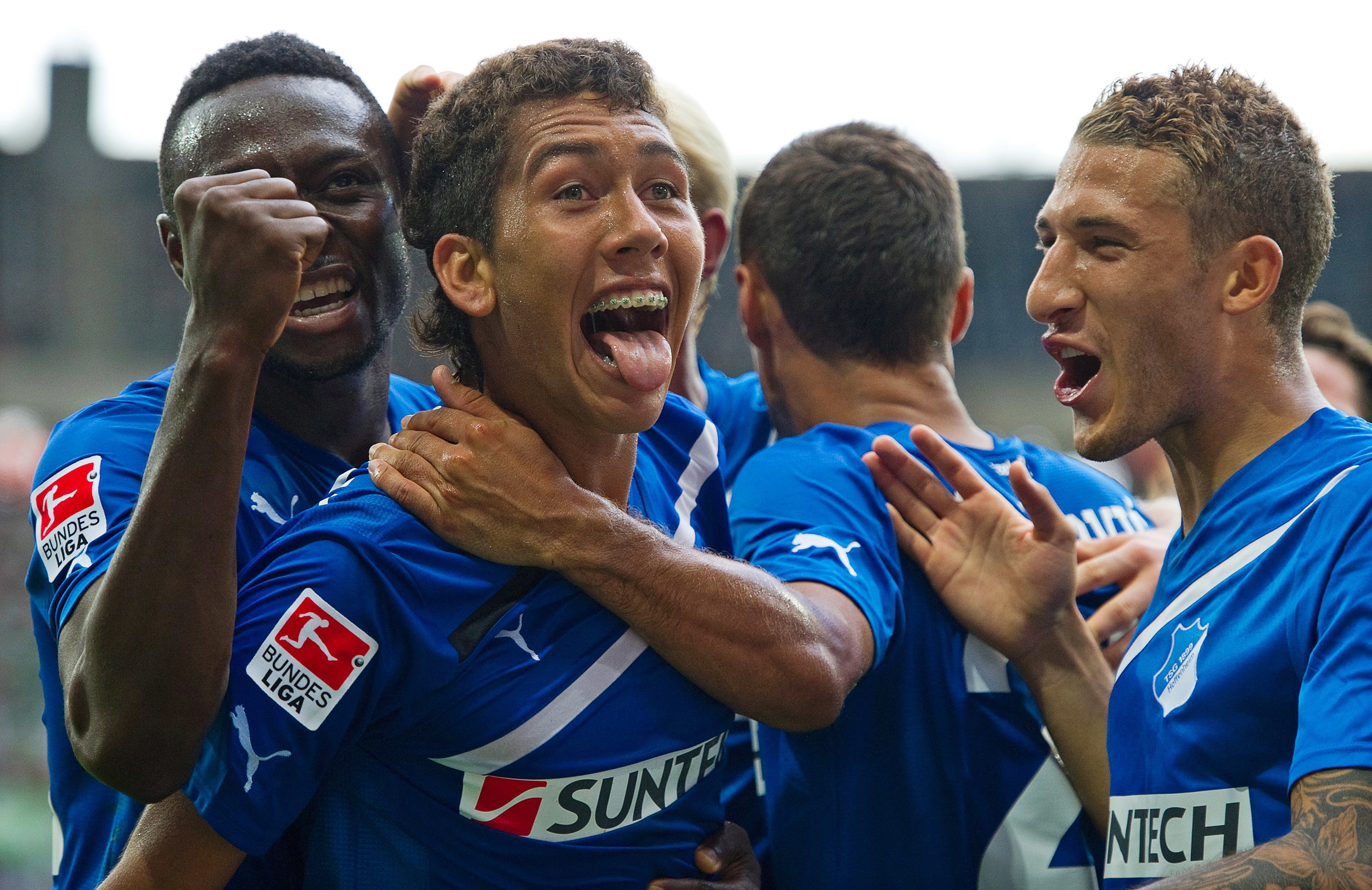
“He was just fantastic,” says Gisdol, proudly. “He gave 100 per cent every single day. If you are that focused and willing to put in the work, your talent will take off. We saw the results of that effort throughout the season.”
Pfanennstiel agrees, “I think he realised early on at Hoffenheim that talent alone would not be enough to succeed. I always say now that Roberto has the skill of a Brazilian and the mentality of a German. That’s what makes him such a special player, and he discovered that combination at Hoffenheim.”
In November 2014 came Firmino’s ultimate reward: his first Brazil caps and goal, scoring a late winner in Austria. He stuck around for the season at Hoffenheim, netting seven goals and laying on another 13 for his team-mates, but an upward move was inevitable. Brendan Rodgers’ Liverpool won the fight, paying €41m in the summer of 2015, and if there had been doubts when Firmino arrived in Europe, there were none about this next chapter.
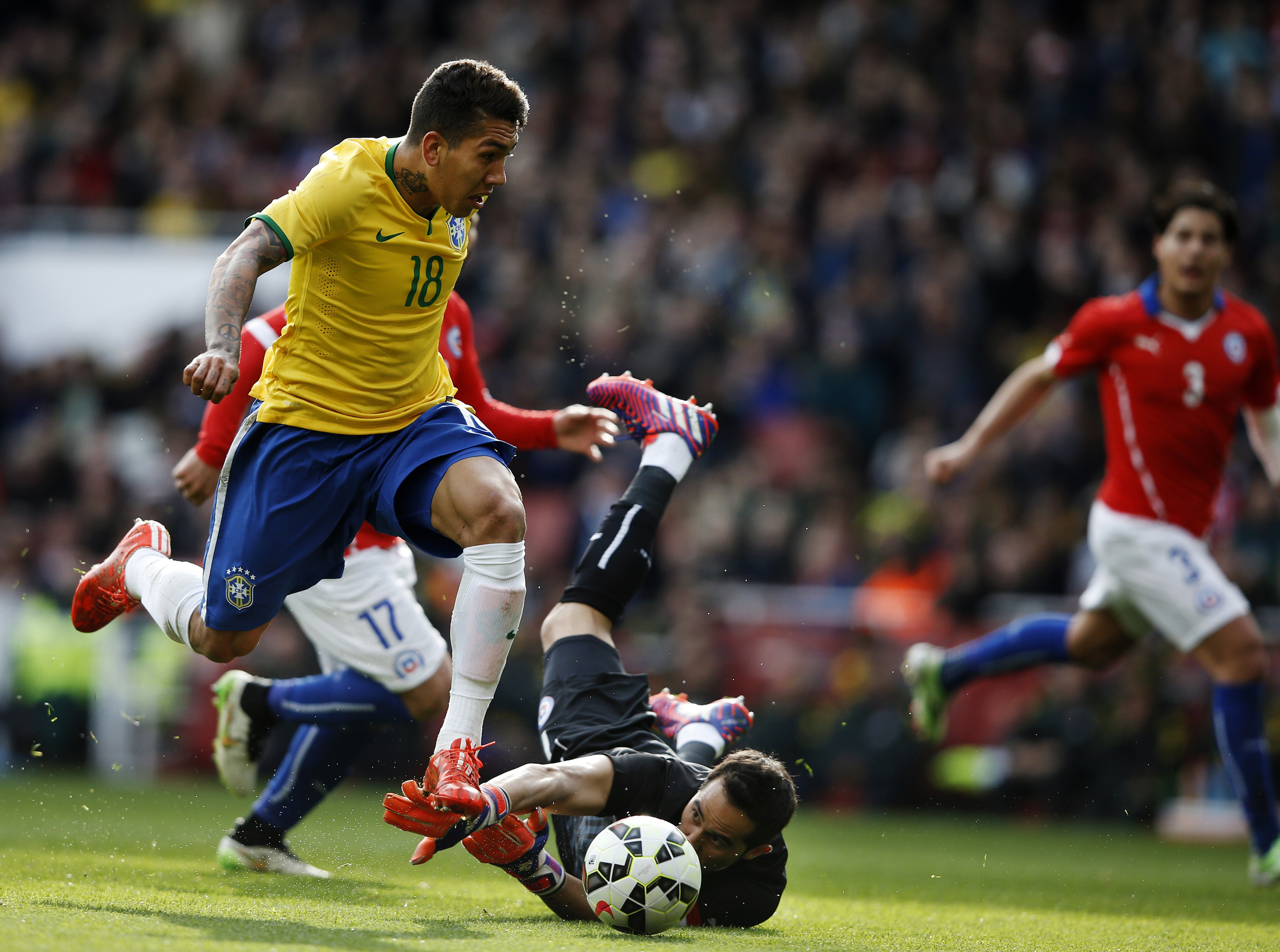
“He was ready to play in the Premier League, without question,” beams Tanner. “You could see his improvement, month by month.
“He couldn’t play for Hoffenheim any more – he had surpassed that level.”
Bobby dazzles the Kop
Liverpool were ready for change of their own, after a 2014/15 campaign in which they had followed up the previous season’s title tilt by finishing a miserable sixth. Eight games into Firmino’s time at Anfield, Rodgers was sacked, replaced by Jurgen Klopp. According to Paul Gorst of the Liverpool Echo, both the timing and the replacement were perfect for Firmino. “Liverpool’s transfer committee identified Firmino as a target, although Rodgers wanted Aston Villa’s Christian Benteke instead,” Gorst tells FFT. “In the end, both came, but Rodgers struggled to find room for Firmino – he was even shoved in at wing-back at Old Trafford.
“Klopp put him straight in as a central striker. He liked Daniel Sturridge, but he was injured too often. Firmino was more reliable on that front and, coupled with his defensive diligence, he soon became irreplaceable.”
On November 21, 2015, the Reds – in 10th – visited leaders Manchester City for a daunting clash at the Etihad. Liverpool raced into a 3-0 lead inside 32 minutes and won 4-1.
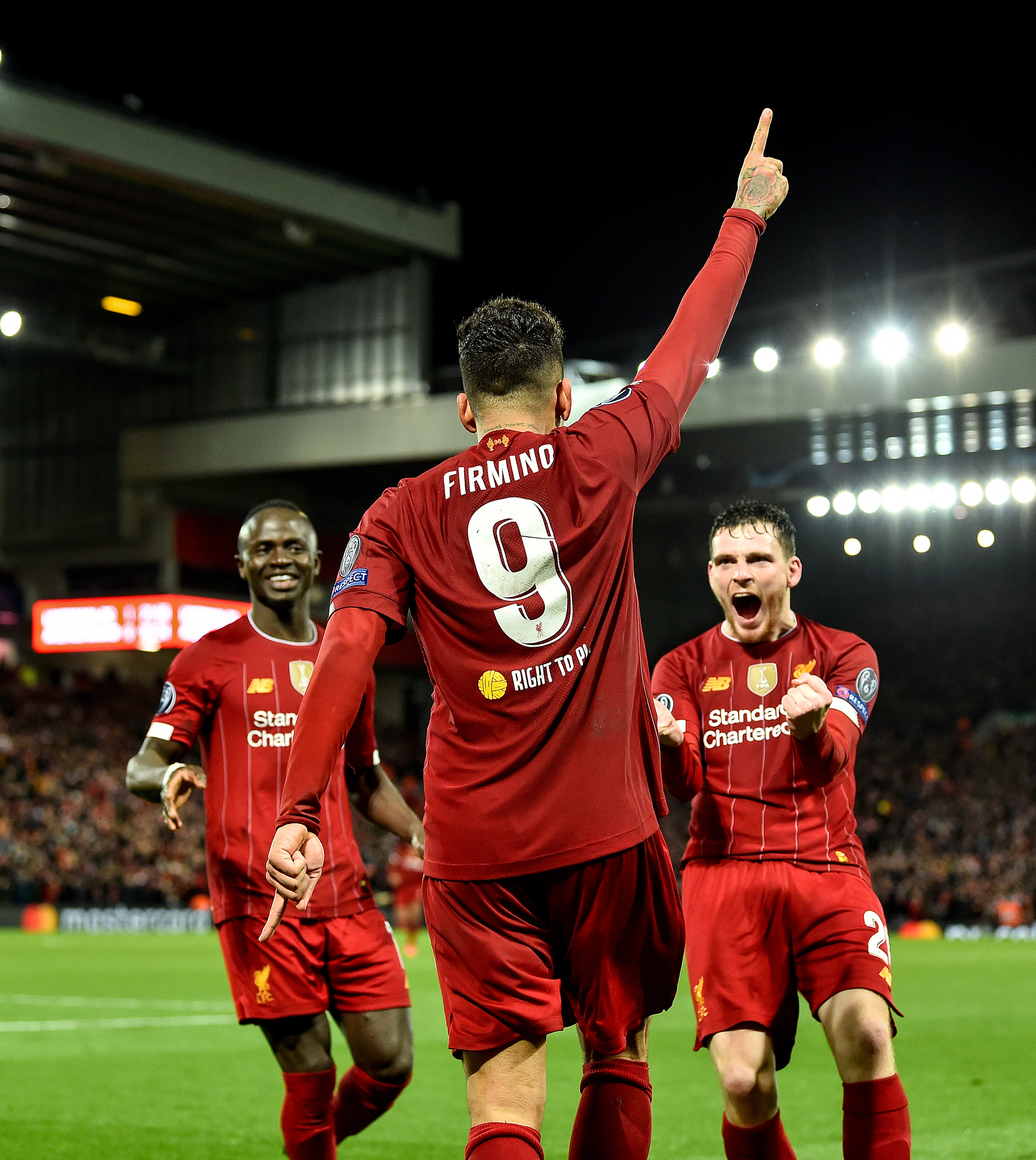
“Firmino scored Liverpool’s third and harried City’s defenders all afternoon,” says Gorst. “He was absolutely brilliant, and he has gone from strength to strength ever since.”
So did Liverpool under Klopp. The signings of Sadio Mané and Mohamed Salah in successive pre-seasons completed the Premier League’s most devastating front three, as evidenced by their combined goal haul of over 250 since the beginning of the 2017/18 campaign. Unusually for a striker, Firmino is comfortably outscored by those either side of him, but that doesn't seem to matter all that much.
“Firmino is the ideal foil for Salah and Mané,” insists Gorst. “Those two were last season’s Golden Boot winners, but without Firmino they wouldn’t get anywhere near those kinds of numbers. Liverpool fans would like to see him score more goals, of course, but when he does, they’re invariably important ones.”
None of those goals have been as key as his two overhead kicks on trial at Figueirense 13 years ago. Unsurprisingly, Tanner counts Firmino among his greatest achievements as a talentspotter.
“I’ve had a hand in signing a lot of players down the years – some that have even gone on to represent Germany,” he reveals. “But I’d have to say Firmino is the best I’ve found. You never know what might happen in the future when you see a young player – you imagine, but never know. Roberto is a good example of what you can do if you really put your heart and soul into it.”
There are good discoveries, there are great discoveries, and then there are discoveries like Bobby Firmino.
NOW READ...
THIS IS ANFIELD 5 keys to Liverpool retaining the title this season
QUIZ Can you name the last captains to win these trophies?
GUIDE Premier League live stream best VPN: how to watch every game from anywhere in the world
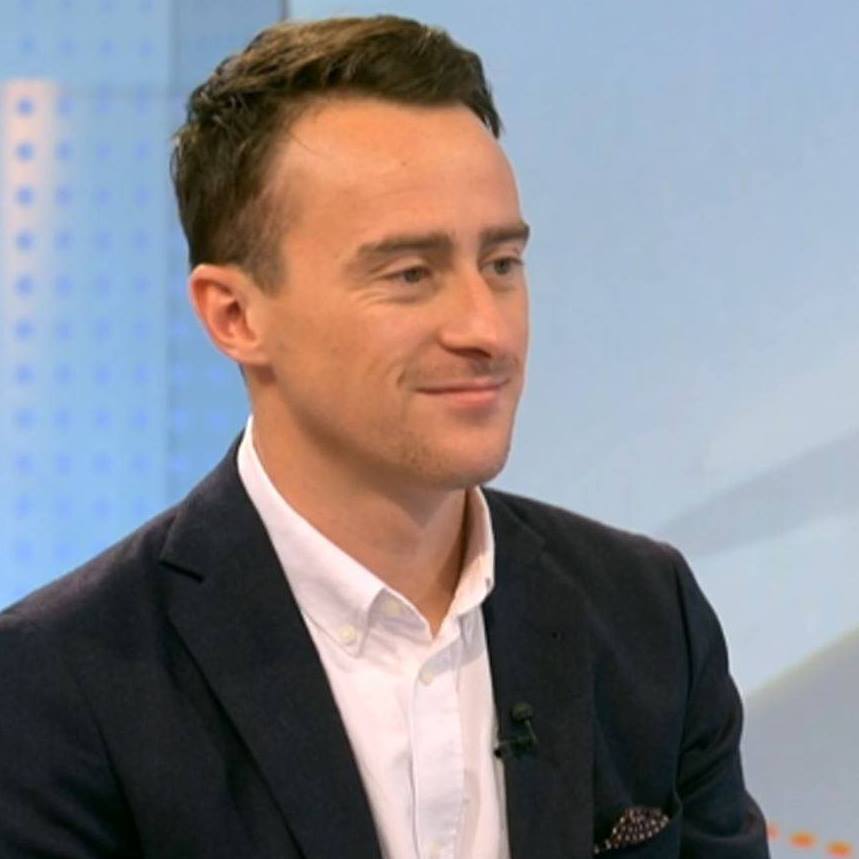
Ed is a staff writer at FourFourTwo, working across the magazine and website. A German speaker, he’s been working as a football reporter in Berlin since 2015, predominantly covering the Bundesliga and Germany's national team. Favourite FFT features include an exclusive interview with Jude Bellingham following the youngster’s move to Borussia Dortmund in 2020, a history of the Berlin Derby since the fall of the Wall and a celebration of Kevin Keegan’s playing career.
